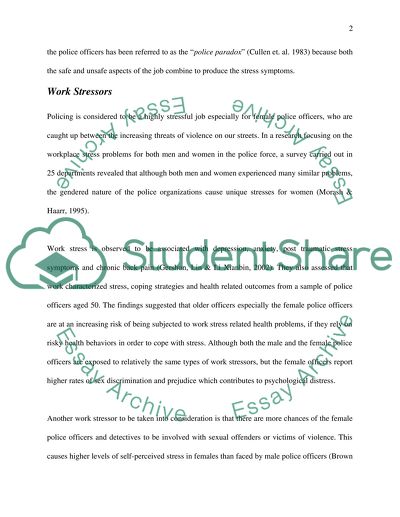Cite this document
(Stressors Faced by Female Police Officers Term Paper, n.d.)
Stressors Faced by Female Police Officers Term Paper. Retrieved from https://studentshare.org/social-science/1501571-workplace-stress-essay
Stressors Faced by Female Police Officers Term Paper. Retrieved from https://studentshare.org/social-science/1501571-workplace-stress-essay
(Stressors Faced by Female Police Officers Term Paper)
Stressors Faced by Female Police Officers Term Paper. https://studentshare.org/social-science/1501571-workplace-stress-essay.
Stressors Faced by Female Police Officers Term Paper. https://studentshare.org/social-science/1501571-workplace-stress-essay.
“Stressors Faced by Female Police Officers Term Paper”, n.d. https://studentshare.org/social-science/1501571-workplace-stress-essay.


